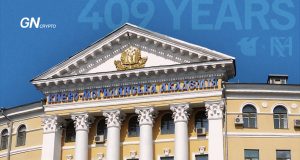Is it possible to pay for Russian gas with Bitcoin?

Cryptocurrencies may suddenly become one of the beneficiaries of the world coming to the collapse against the background of a large-scale geopolitical crisis, war, and sanctions.
On this page
Prehistory
The main exporter of natural gas in the world, after its aggressive actions in Ukraine, found itself in isolation. This jeopardized the economy of those states that announced sanctions against Russia, as European consumers have long been dependent on the Russian “gas needle”.
It would seem that all the conditions for an ideal deal remain. After all, the “gas station country” itself is completely dependent on foreign currency earnings coming from abroad. But there was one circumstance: significant volumes of Russia’s gold and currency reserves were also blocked, which, according to the President of Russia, “discredited the dollar and the euro as reliable collateral currencies.”
As a “response” from Russia, there was a threat to rewrite contracts for gas supplies to “unfriendly countries” for payment in rubles. However, Europe categorically rejected this proposal.
Finding a compromise
It may seem that “Western partners” are simply following the principle. After all, is there any difference in how to pay at the market rate on the day of payment? Well, not quite.
Technically, Europeans could only buy an unnecessary and, let’s be honest, not very liquid ruble in a Russian bank. If they agreed to Putin’s demands, they could easily fall into the “Soviet model” of mutual settlements, when 1 Euro could suddenly cost, for example, 92 kopecks.
The compromise, as a result, became a scheme with the conversion of currency into rubles through Gazprombank, which can be considered a conditional victory for Europe, because nothing has changed either technically or financially for them.
Cryptocurrencies
While discussions about a suitable method of paying for Russian gas were simmering, the idea of the possible adoption of bitcoin payments by Russia was voiced for the first time.
Surprisingly, the author of the proposal turned out not to be a notional IT specialist (who has been receiving a salary in stablecoins for a long time), and not an NFT-punk. It was State Duma deputy Pavel Zavalny.
Well, to be fair, it must be said that the option of paying for gas with bitcoins sounded in Russian style: frankly careless and sloppily (like “China can pay in yuan, and Turkey in lira” and “A set of currencies can be any. If there are bitcoins, we will accept bitcoins”)
Also, it was only about the so-called “friendly countries”. But in the same friendly China, cryptocurrencies are banned. Therefore, at present, such a possibility is unlikely.
Are such payments possible in the future?
The discussion will certainly continue. It is not difficult to imagine a new economic reality in which large states have cryptocurrencies on their balances and use them for export-import relations.
Speed, convenience, the possibility of round-the-clock and cross-border payments are all obvious advantages of crypto. Even “expensive” Ethereum gas is almost nothing if you imagine the possible volume of gas transactions.
There will be two stumbling blocks.
The first one is volatility. It will be impossible to fight it with the help of stablecoins because they are centralized, and, in this sense, are not much different from dollars and euros.
The second is the incredible corruption in the Russian Federation, which may not be ready for mundane issues like “Who will directly carry out transactions?”, “Where will the secret words be stored?” and “Which phone will Google Authenticator be installed on?”
The example of El Salvador, where President Bukele bragged about buying bitcoins to a government address, sometimes naked in the bathroom and sometimes in the toilet, illustrates in many ways the possible problem with the Kremlin’s adoption of cryptocurrencies.
Bitcoin price
It’s frightening to imagine how much bitcoin could cost if such large players appeared in its network. Gas contracts would be systemic, and all payment dates would be known. Plus, millions of coins remain illiquid and have not moved from their addresses for many years.
The world is desperately moving towards a bitcoin scarcity. A million dollars for BTC? A precedent such as the adaptation of cryptocurrencies to government contracts would be a powerful trigger for such a reality.
The content on The Coinomist is for informational purposes only and should not be interpreted as financial advice. While we strive to provide accurate and up-to-date information, we do not guarantee the accuracy, completeness, or reliability of any content. Neither we accept liability for any errors or omissions in the information provided or for any financial losses incurred as a result of relying on this information. Actions based on this content are at your own risk. Always do your own research and consult a professional. See our Terms, Privacy Policy, and Disclaimers for more details.



























